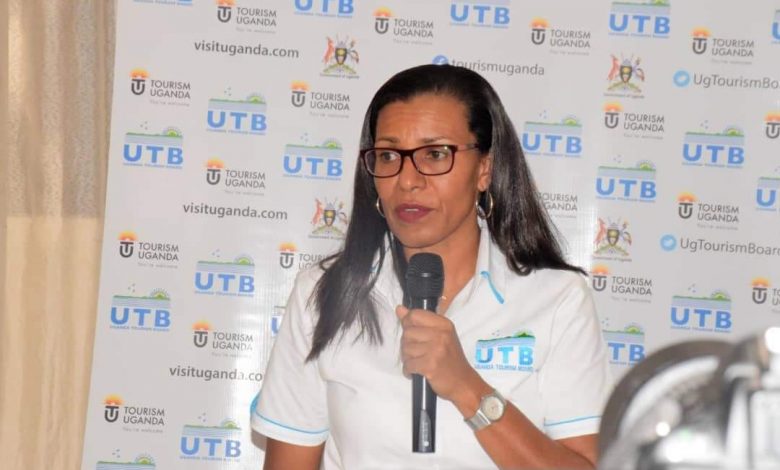Uganda Tourism Board moves to enforce licensing rules
According to the law, facilities including hotels, lodges, guest houses, motels, inns, serviced apartments, cottages, villas, hostels, tenanted camps, and farmhouses must all have a valid tourism operating license to legally operate.

As Uganda’s tourism industry continues to grow, the government is taking decisive steps to ensure that all accommodation facilities meet regulatory standards.
In a bold move to uphold the 2008 Uganda Tourism Act, the Uganda Tourism Board (UTB), in partnership with the Uganda Police, will begin a nationwide crackdown on unlicensed accommodation facilities starting November 18, 2024.
This enforcement campaign aims to protect the integrity of Uganda’s tourism sector and ensure that travellers are staying in facilities that meet high-quality standards.
The UTB’s upcoming operation will target a wide range of accommodations, from high-end hotels to small guesthouses.
According to the law, facilities including hotels, lodges, guest houses, motels, inns, serviced apartments, cottages, villas, hostels, tenanted camps, and farmhouses must all have a valid tourism operating license to legally operate.
“We want to ensure that every tourist, whether domestic or international, receives a consistent and safe experience across Uganda,” explains Lilly Ajarova, Chief Executive Officer of the Uganda Tourism Board. “Licensed facilities must adhere to minimum standards, and this operation is about enforcing those standards.”
The initiative comes as part of a broader effort to professionalize Uganda’s tourism industry, which has grown significantly in recent years due to an increase in international arrivals. As the country positions itself as a premier tourist destination, regulatory compliance is seen as key to maintaining trust and quality in the sector.
Risks of Non-Compliance
Starting November 18, facilities found operating without the required UTB license will face immediate closure. This bold stance comes after months of warnings and awareness campaigns urging accommodation providers to comply with the 2008 Tourism Act. Yet, some operators remain unlicensed, often citing difficulties in navigating the registration process or a lack of awareness about the law.
An official from UTB who spoke to us on condition of anonymity, emphasized that, “Ignorance of the law is not a defence. The law has been in place for over a decade, and we have provided ample opportunities for operators to register. The time for leniency is over.”
Many unlicensed operators risk more than just closure—without the legal status that comes with licensing, these businesses face hefty fines, legal battles, and the possibility of losing customers permanently. Moreover, failing to comply with the law leaves tourists vulnerable to unsafe accommodations, damaging Uganda’s reputation as a safe and reliable destination.
Expert Insights on the Benefits of Compliance
To understand the wider implications of this enforcement, we spoke to John Kizito, a tourism consultant with over 15 years of experience in Uganda’s hospitality sector. Kizito views the move as a much-needed step toward raising the bar in Uganda’s accommodation standards.
“Having all accommodation facilities licensed by UTB isn’t just about compliance—it’s about ensuring quality control across the sector,” Kizito says. “When tourists come to Uganda, they expect a certain level of service and safety, whether they are staying at a luxury lodge or a simple guest house. Licensing ensures that these expectations are met consistently.”
Kizito adds that licensed facilities are also more likely to receive government support and attract international tourists. “Many tour operators and travel agencies abroad will only book clients into accommodations that are recognized by the national tourism board. This crackdown will help weed out substandard or illegal operators and open up more opportunities for those who follow the rules.”
What Operators Need to Do
With the deadline fast approaching, UTB is urging all unlicensed accommodation operators to act quickly. Registration is a straightforward process and can be completed through UTB’s online platform or at their offices. Once licensed, facilities will be subject to regular inspections to ensure they continue to meet the board’s required standards.
For operators already in compliance, this move is a welcome one. Rita, the manager of a licensed boutique hotel in Entebbe, expressed her support for the enforcement action.
“Those of us who follow the law are tired of being undercut by unlicensed facilities that don’t pay for inspections or invest in meeting standards,” she said. “This will level the playing field and improve the overall quality of our industry.”
As the November 18 deadline looms, the message from UTB is clear: compliance is non-negotiable. The crackdown promises to have far-reaching consequences for Uganda’s accommodation industry, but ultimately, it is a move that seeks to protect tourists, enhance the country’s tourism reputation, and elevate service standards across the board.
For travelers, this operation offers a reassuring signal that Uganda is serious about ensuring quality and safety in its accommodation sector. And for operators, it’s a timely reminder that maintaining a license is essential not only for their survival but for the growth and professionalism of Uganda’s thriving tourism industry.







